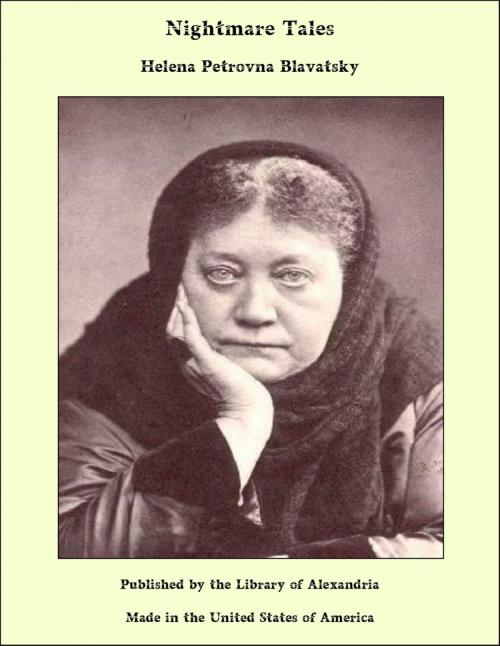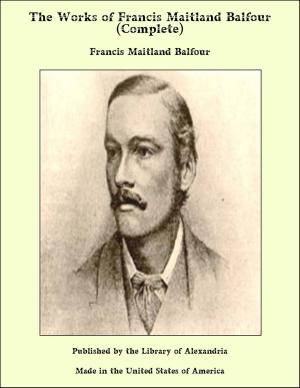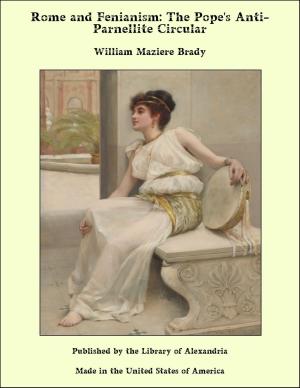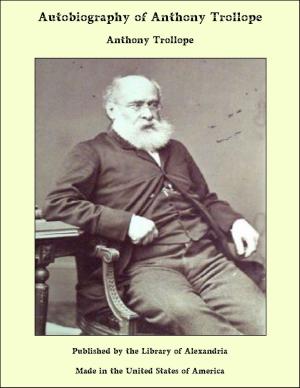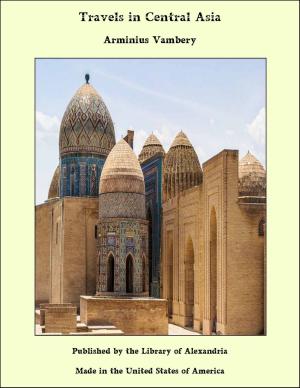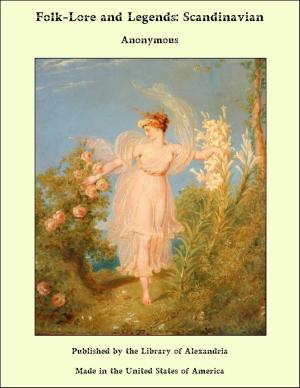| Author: | Helena Petrovna Blavatsky | ISBN: | 9781465615107 |
| Publisher: | Library of Alexandria | Publication: | March 8, 2015 |
| Imprint: | Language: | English |
| Author: | Helena Petrovna Blavatsky |
| ISBN: | 9781465615107 |
| Publisher: | Library of Alexandria |
| Publication: | March 8, 2015 |
| Imprint: | |
| Language: | English |
IT was a dark, chilly night in September, 1884. A heavy gloom had descended over the streets of A—, a small town on the Rhine, and was hanging like a black funeral-pall over the dull factory burgh. The greater number of its inhabitants, wearied by their long day’s work, had hours before retired to stretch their tired limbs, and lay their aching heads upon their pillows. All was quiet in the large house; all was quiet in the deserted streets. I too was lying in my bed; alas, not one of rest, but of pain and sickness, to which I had been confined for some days. So still was everything in the house, that, as Longfellow has it, its stillness seemed almost audible. I could plainly hear the murmur of the blood, as it rushed through my aching body, producing that monotonous singing so familiar to one who lends a watchful ear to silence. I had listened to it until, in my nervous imagination, it had grown into the sound of a distant cataract, the fall of mighty waters ... when, suddenly changing its character, the ever growing “singing” merged into other and far more welcome sounds. It was the low, and at first scarce audible, whisper of a human voice. It approached, and gradually strengthening seemed to speak in my very ear. Thus sounds a voice speaking across a blue quiescent lake, in one of those wondrously acoustic gorges of the snow-capped mountains, where the air is so pure that a word pronounced half a mile off seems almost at the elbow. Yes; it was the voice of one whom to know is to reverence; of one, to me, owing to many mystic associations, most dear and holy; a voice familiar for long years and ever welcome: doubly so in hours of mental or physical suffering, for it always brings with it a ray of hope and consolation. “Courage,” it whispered in gentle, mellow tones. “Think of the days passed by you in sweet associations; of the great lessons received of Nature’s truths; of the many errors of men concerning these truths; and try to add to them the experience of a night in this city. Let the narrative of a strange life, that will interest you, help to shorten the hours of suffering.... Give your attention. Look yonder before you!” “Yonder” meant the clear, large windows of an empty house on the other side of the narrow street of the German town. They faced my own in almost a straight line across the street, and my bed faced the windows of my sleeping room. Obedient to the suggestion, I directed my gaze towards them, and what I saw made me for the time being forget the agony of the pain that racked my swollen arm and rheumatical body.
IT was a dark, chilly night in September, 1884. A heavy gloom had descended over the streets of A—, a small town on the Rhine, and was hanging like a black funeral-pall over the dull factory burgh. The greater number of its inhabitants, wearied by their long day’s work, had hours before retired to stretch their tired limbs, and lay their aching heads upon their pillows. All was quiet in the large house; all was quiet in the deserted streets. I too was lying in my bed; alas, not one of rest, but of pain and sickness, to which I had been confined for some days. So still was everything in the house, that, as Longfellow has it, its stillness seemed almost audible. I could plainly hear the murmur of the blood, as it rushed through my aching body, producing that monotonous singing so familiar to one who lends a watchful ear to silence. I had listened to it until, in my nervous imagination, it had grown into the sound of a distant cataract, the fall of mighty waters ... when, suddenly changing its character, the ever growing “singing” merged into other and far more welcome sounds. It was the low, and at first scarce audible, whisper of a human voice. It approached, and gradually strengthening seemed to speak in my very ear. Thus sounds a voice speaking across a blue quiescent lake, in one of those wondrously acoustic gorges of the snow-capped mountains, where the air is so pure that a word pronounced half a mile off seems almost at the elbow. Yes; it was the voice of one whom to know is to reverence; of one, to me, owing to many mystic associations, most dear and holy; a voice familiar for long years and ever welcome: doubly so in hours of mental or physical suffering, for it always brings with it a ray of hope and consolation. “Courage,” it whispered in gentle, mellow tones. “Think of the days passed by you in sweet associations; of the great lessons received of Nature’s truths; of the many errors of men concerning these truths; and try to add to them the experience of a night in this city. Let the narrative of a strange life, that will interest you, help to shorten the hours of suffering.... Give your attention. Look yonder before you!” “Yonder” meant the clear, large windows of an empty house on the other side of the narrow street of the German town. They faced my own in almost a straight line across the street, and my bed faced the windows of my sleeping room. Obedient to the suggestion, I directed my gaze towards them, and what I saw made me for the time being forget the agony of the pain that racked my swollen arm and rheumatical body.
